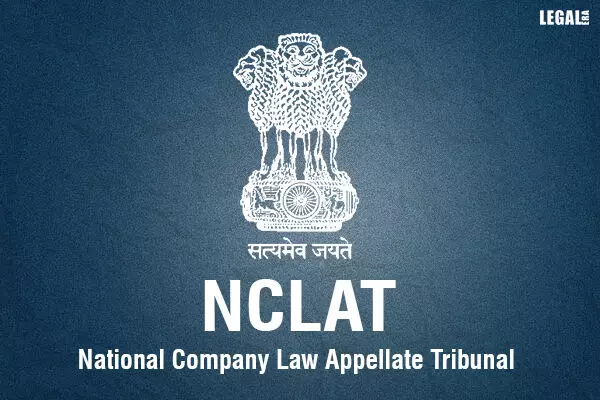- Home
- News
- Articles+
- Aerospace
- AI
- Agriculture
- Alternate Dispute Resolution
- Arbitration & Mediation
- Banking and Finance
- Bankruptcy
- Book Review
- Bribery & Corruption
- Commercial Litigation
- Competition Law
- Conference Reports
- Consumer Products
- Contract
- Corporate Governance
- Corporate Law
- Covid-19
- Cryptocurrency
- Cybersecurity
- Data Protection
- Defence
- Digital Economy
- E-commerce
- Employment Law
- Energy and Natural Resources
- Entertainment and Sports Law
- Environmental Law
- ESG
- FDI
- Food and Beverage
- Gaming
- Health Care
- IBC Diaries
- In Focus
- Inclusion & Diversity
- Insurance Law
- Intellectual Property
- International Law
- IP & Tech Era
- Know the Law
- Labour Laws
- Law & Policy and Regulation
- Litigation
- Litigation Funding
- Manufacturing
- Mergers & Acquisitions
- NFTs
- Privacy
- Private Equity
- Project Finance
- Real Estate
- Risk and Compliance
- Student Corner
- Take On Board
- Tax
- Technology Media and Telecom
- Tributes
- Viewpoint
- Zoom In
- Law Firms
- In-House
- Rankings
- E-Magazine
- Legal Era TV
- Events
- News
- Articles
- Aerospace
- AI
- Agriculture
- Alternate Dispute Resolution
- Arbitration & Mediation
- Banking and Finance
- Bankruptcy
- Book Review
- Bribery & Corruption
- Commercial Litigation
- Competition Law
- Conference Reports
- Consumer Products
- Contract
- Corporate Governance
- Corporate Law
- Covid-19
- Cryptocurrency
- Cybersecurity
- Data Protection
- Defence
- Digital Economy
- E-commerce
- Employment Law
- Energy and Natural Resources
- Entertainment and Sports Law
- Environmental Law
- ESG
- FDI
- Food and Beverage
- Gaming
- Health Care
- IBC Diaries
- In Focus
- Inclusion & Diversity
- Insurance Law
- Intellectual Property
- International Law
- IP & Tech Era
- Know the Law
- Labour Laws
- Law & Policy and Regulation
- Litigation
- Litigation Funding
- Manufacturing
- Mergers & Acquisitions
- NFTs
- Privacy
- Private Equity
- Project Finance
- Real Estate
- Risk and Compliance
- Student Corner
- Take On Board
- Tax
- Technology Media and Telecom
- Tributes
- Viewpoint
- Zoom In
- Law Firms
- In-House
- Rankings
- E-Magazine
- Legal Era TV
- Events
NCLAT Rules: Once Resolution Plan Is Approved By CoC And Submitted For Adjudicating Authority’s Approval, CoC Cannot Consider Other Plans

NCLAT Rules: Once Resolution Plan Is Approved By CoC And Submitted For Adjudicating Authority’s Approval, CoC Cannot Consider Other Plans
The NCLAT New Delhi bench, comprising Justice Ashok Bhushan (Judicial Member), Mr. Barun Mitra (Technical Member), and Mr. Arun Baroka (Technical Member), has ruled that a Resolution Plan, even before the approval of the Adjudicating Authority, is binding inter se the Committee of Creditors (CoC) and the Successful Resolution Applicant (SRA).
The bench further clarified that once the CoC has approved a Resolution Plan and it is pending approval from the Adjudicating Authority, the CoC cannot entertain any other Resolution Plan for consideration.
The corporate debtor, International Recreation & Amusement Ltd, was admitted to insolvency proceedings on August 3, 2018. On May 9, 2019, the CoC approved the Resolution Plan submitted by HGASApex JV, a joint venture of Hari Global Advisory Services and Parklane Investment and Securities Ltd. The Resolution Plan was subsequently submitted to the Adjudicating Authority for approval.
In 2024, the appellant filed an Interlocutory Application (IA No. 4783/2024) seeking to place a new Resolution Plan before the CoC. The Adjudicating Authority rejected the application on December 4, 2024. Aggrieved by this order, the appellant filed an appeal.
The appellant, claiming to be the Promoter of the corporate debtor, argued that they were ready to carry out the construction and development of the debtor and had submitted a Resolution Plan for the CoC’s consideration. However, the Adjudicating Authority rejected the submission, relying on an earlier judgment of the NCLAT, which the appellant contended was not applicable.
The respondent countered by arguing that the appellant was not the Promoter of the corporate debtor and lacked the authority to submit a new Resolution Plan. The respondent further stated that the appellant had no jurisdiction to file an application, and that the Adjudicating Authority had rightly rejected the appellant’s claim.
The NCLAT referenced the Supreme Court’s decision in Ebix Singapore Pvt. Ltd. vs. Committee of Creditors of Educomp Solutions Ltd. & Anr. (2022), where the Apex Court held that the Resolution Plan, even before being approved by the Adjudicating Authority, is binding between the CoC and the SRA. The Supreme Court also clarified that the Resolution Plan is not to be treated as a “contract” governed by the Contract Act during the period between the CoC’s approval and the Adjudicating Authority’s approval.
The NCLAT further observed that once the CoC has approved a Resolution Plan, it is not entitled to consider any other plan while the plan is pending before the Adjudicating Authority for approval. It also concluded that the appellant, claiming to be the Promoter, was not entitled to submit a new Resolution Plan. The bench held that the appellant’s request to present the Resolution Plan before the CoC was rightly rejected.
The NCLAT upheld the decision of the Adjudicating Authority, reaffirming that a Resolution Plan approved by the CoC is binding even before the Adjudicating Authority’s approval, and that the CoC cannot entertain other plans once a Resolution Plan is pending approval. The bench dismissed the appellant's appeal.


